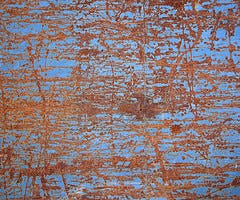Better papers for better science
The scientific paper is the gold standard of scientific achievement. In most disciplines this is the journal paper. In some, such as my own, high profile conferences have a standing similar to the most competitive journals. Turning to the CV of a researcher, for promotion, or simply to form a view of their accomplishments, I turn first to their publication list, or increasingly to Google Scholar and Microsoft Academic Search. I also, shame on me, check out their h-index, a measure of their citations, to give a crude and inaccurate sense of the reach of their work. I am personally attached to this system, raised in it. I know how to communicate in the forms required and how to play the 'game' - to select publication venues and to anticipate and to respond to referees. It is thus with some pain that I acknowledge that the scientific paper is a dying medium.
Do not get me wrong here. There are more papers being published year on year, particularly as China is producing increasing volumes of good scientific work. Rather it is that the scientific paper is painfully exposed as an obviously outmoded form of communication. Simply, when compared to the rich, dynamic, media we consume in other settings the scientific paper fails to measure up. The idea that, because this is communication between experts, there is no need for anything other than the constrained forms allowed by publishers, is false. Experience has taught me that the best papers 'teach' their content, that they build on an understanding that the reader is rushed, may lack, or simply not recall, some foundational knowledge, that their readings are often directed by their own purposes that the authors may only dimly perceive. We have the capability now to address this - links, video, smart tagging, layered texts, and so on. Of course we can now permit the reader to access the underlying 'data' on which the paper is founded, to reanalyse and represent it, in the context of the scientific presentation of the originators. Such capabilities are particularly appropriate to the industrial or professional reader for whom many conventional research papers are inaccessible.
Not only is the scientific paper, as we now find it, outmoded, but it is embedded in a publication process that minimises critical and scholarly discourse. I am fortunate to review a large number of papers and sit on programme committees for many for the larger conferences in my field. I have been a, rather less than diligent, editor for major journals. I therefore have had access to the insight generated as part of the peer review process. Often some of the very best comments, sometimes acerbic, but more commonly insightful, provide summaries and research pointers that are much better than the papers on which this attention has been lavished. Yet this work is lost to all but the small editorial community and the authors. Often, it appears to the authors too, as the unimproved paper appears in another venue with less rigorous standards, or a less well informed reviewer.
So, I would argue we need to move away from the legacy medium of the scientific paper. We can do so without shedding peer review or some of the norms of effective scientific discourse. There are many models for doing this and it is easy to envisage the sort of platforms that could support it. I would like to think that perhaps the online paper and institutional repository will evolve into the sort of venues for dissemination of scientific work that I have hinted at above. Perhaps too media like twitter and, yes, the blog will have a role to play in a more formalised system of scholarly communication.
What is less clear to me is how we engineer the required culture change. I do not think that we can move away from existing publication methods through an evolutionary approach in which the better medium supplants the weaker. The system of publication is too ingrained and too institutionalised for that to happen. So, I think we, in scientific communities and in universities, need to create the space, and critically the credit, for experimentation. We will individually need to take risks - something easier for established scientists - than those with careers to make. The prize is however worth the game - a new setting for scholarly discourse and ultimately then, better science.



